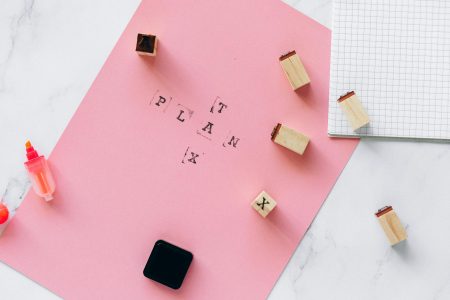Is it time to say goodbye to take-out menus and processed dinners and switch to making your own meals? At first, this may seem daunting, but getting started in the kitchen isn’t as difficult as it looks. Plus, it’s a lot more fulfilling, delicious, and ensures you make the most out of every dollar.
The Benefits of Cooking from Scratch
Before we get started on chopping, sautéing, and simmering, let’s address the elephant in the room: why bother cooking from scratch?
- Flavor explosion. In terms of depth and complexity, it is often difficult to compare pre-made meals to home-cooked meals. By cooking from scratch, you have complete control over the ingredients and can explore various flavors.
- Healthier choices. In contrast with processed foods, you can choose fresh, whole ingredients, minimizing the hidden sugars, sodium, and preservatives. Researchers at Johns Hopkins University found that people who cook at home frequently consume fewer calories, sugars, and carbohydrates than those who cook only once a week, regardless of whether they are trying to lose weight.
- Budget-friendly. Even though some ingredients might seem expensive initially, you can save money by cooking in bulk and repurposing leftovers. Also, eating out costs an average of $20.37, as opposed to $4.31 for home-cooked meals.
- Creative freedom. When you experiment with spices, herbs, and cooking techniques, the possibilities for culinary creations are endless. You’ll never forget the feeling of making an original dish.
- Relieves stress. According to a survey conducted by OnePoll of 2,000 Americans, 78% found cooking to be calming. At 65%, cooking was rated the top stress-relieving activity. This could help you save money in long-term care.
- Skill-building. Cooking is a valuable life skill, and it can nourish yourself and your family. Mastering a new recipe can also give you an unbeatable feeling of accomplishment.
Now that we’ve cleared that up, let’s discuss how to cook from scratch if you’re just starting out.
Table of Contents
ToggleMeal Planning 101
Planning your meals throughout the week can save time, money, and stress. Typically, this involves planning your meals for a week in advance and then making a grocery list. Meals can also be planned out for as long as you like, for two weeks or even a month.
Meal planning has the following benefits:
- Saves time. With a meal plan, you don’t have to worry about what to cook for dinner every night. All you need to do is grab the ingredients and get cooking.
- Planning meals in advance can save money. It can also prevent you from making impulse grocery purchases and from buying unhealthy or expensive ingredients.
- Helps you eat healthier. Meal planning lets you make sure you eat a variety of healthy and nutritious foods. The most effective way to make your meals healthier is to include plenty of fruits, vegetables, and whole grains while limiting your intake of processed foods and unhealthy fats.
- Reduces stress. A meal plan can make cooking less stressful. It’s easier to enjoy cooking and eating when you know what you will make.
The following tips will help you get started with meal planning:
- Consider your needs and preferences. Think about your dietary restrictions, budget, skills in the kitchen, and how much time you have each day for cooking. Do you have any allergies or food preferences?
- Plan your meals around sales and seasonal produce. In addition to saving money, you can eat healthier. Look for weekly deals at your local grocery store, and look for seasonal fruits and vegetables at their best.
- Choose recipes that you enjoy, and that are easy to prepare. Whenever you cook, don’t make it too complicated. Plenty of delicious and healthy recipes can be prepared in less than 30 minutes.
- Make a grocery list based on your meal plan. Doing this can prevent impulse purchases and ensure you have everything you need. Moreover, it forces you to look at your pantry and fridge to see what you already have.
- Prep some ingredients in advance. On busy weeknights, this can save you time. To prepare your meal ahead of time, you could chop vegetables, cook quinoa, or marinate meat.
- Make it a family affair. Making your family’s meal plan can be fun. Getting your kids involved in choosing and preparing recipes is a great way to teach them how to cook.
- Be flexible. There are times when things do not go according to plan, so be prepared to adjust your meal plan as needed. For instance, if you don’t like cooking one night, order takeout or eat leftovers.
Need some meal planning inspiration? You can use many resources to help you plan your meals, including
- Websites. Budget Bytes and Pinch of Yum are some websites offering free meal plans.
- Apps. Many apps, such as Mealime, Paprika, and Plan to Eat, can help you plan your meals.
- Cookbooks. For meal planning inspiration, check out “The Weeknight Dinner Cookbook” by Mary Younkin, “The Ultimate One-Pan Oven Cookbook: Complete Meals Using Just Your Sheet Pan, Dutch Oven, Roasting Pan and More” by Julia Konovalova, and “The Instant Pot Meal Planner” by Laurel Randolph.
In addition, you can ask family members for recipes that have been handed down through the generations.
Stock Your Pantry
As part of your meal planning, ensure that you have these items on hand as well.
- Essential staples. Essential cooking and baking staple means you have a variety of spices, including cumin, paprika, cayenne pepper, bottles of vinegar, and olive oil.
- Grains. For versatile meals, stock up on brown rice, quinoa, pasta, and whole-wheat bread.
- Canned goods. Make quick and healthy meals with canned beans, tomatoes, and tuna.
It’s not necessary to stock your pantry in one trip. It would be better if you bought these items when they were on sale or if you had a coupon. For example, if canned beans or tuna are BOGO, then that’s when you would purchase these pantry staples.
Gearing Up for Kitchen Success
With your culinary enthusiasm in full swing, let’s discuss the tools of the trade. To get started, you don’t need an expensive chef’s kitchen. But, it will be easier for you if you have these items:
- Sharp knives. Knives are extensions of your hands, so choose quality blades and keep them sharp.
- Sturdy pots and pans. Cast iron skillets, Dutch ovens, and stainless steel saucepans are versatile pieces to choose from.
- Cutting board. To prevent cross-contamination, use a non-porous material such as wood or plastic.
- Spatulas and spoons. Stirring and scraping will be easier with heat-resistant options.
- Measuring cups and spoons. A good measuring tool set will help you achieve accuracy in the kitchen.
- Mixing bowls. Various sizes cater to different types of tasks, such as whisking eggs and tossing salads.
If you are just starting out and/or have little money, ask your friends and family if they have extra kitchen equipment they are willing to part with. It’s also advisable to hit up local thrift stores for these items.
You should also avoid buying tools you won’t use right away. If you cook from scratch more often, you’ll find that some tools are essential. Slow cookers or instant pots, for example, can make quick work of dinner when you’re just starting out. It may be worthwhile to invest in a standing mixer once you start baking your own bread.
Essential Cooking Techniques
After assembling your kitchen arsenal and stockpiling your pantry, let’s look at some basic techniques that will help you get started:
- Chopping. To ensure even cooking and beautiful presentation, master knife cuts such as julienne, dice, and brunoise.
- Sautéing. If you want to brown vegetables, meat, or seafood quickly, this method is perfect for you.
- Simmering. In order to extract deep flavors and tenderize tough cuts, low and slow cooking is essential.
- Boiling. Whether cooking pasta, rice, or potatoes, boiling is an easy yet efficient method.
- Roasting. Vegetables and meat are caramelized and get crispy skin when cooked at high temperatures and dry.
- Baking. There are endless possibilities for deliciousness when it comes to baking, from fluffy cakes to savory casseroles.
To learn cooking techniques, there are a variety of resources available, including:
- Cooking classes. A hands-on experience is the best way to begin if you have the funds for it. By taking a cooking class with professional instruction, you’ll be able to ask questions and learn directly from the instructor.
- YouTube channels. Take advantage of the many YouTube channels that teach cooking for free. As an example, Chef John from Food Wishes teaches techniques and basic recipes.
- Websites. After you feel more confident in the kitchen, you’ll be able to access thousands of recipe websites and blogs, but websites like America’s Test Kitchen and AllRecipes also offer cooking courses.
- Ask for help. Cooking offers a great way to connect with others and form a sense of community. Learn how to cook your favorite dish from a friend, relative, or even neighbor.
Embrace the Recipe
Now it’s time to get cooking! To take some of the heat out of the kitchen, here are some pointers to keep in mind:
- Start simple. You shouldn’t attempt a Michelin-star dish right away. Focus on a few key ingredients and techniques when you begin by creating beginner-friendly recipes.
- Read carefully. Be sure to familiarize yourself with the recipe’s instructions and timeline before beginning. By doing this, you will avoid last-minute scrambling.
- You don’t have to be afraid to adapt. The purpose of recipes is to provide guidelines, not to be taken literally. If you have a preference for certain ingredients, spices, or cooking times, feel free to make them accordingly.
Make Cooking Fun!
Last but not least, remember to have fun while cooking from scratch.
- Get together with friends and family to cook. Cooking can be a great way to bond with your family. There is nothing better than sharing laughter, stories, and delicious meals together.
- Don’t be afraid to experiment with flavors. Take your creativity to the next level! Find your own culinary signature by experimenting with different herbs, spices, and ingredients.
- Take pride in your accomplishments. Every burnt cookie or undercooked chicken is a lesson to be learned. Celebrate every culinary triumph and be proud of your progress!
Are you ready to start cooking?
To get you started, here are some beginner-friendly recipes:
- One-pan wonders. Using a sheet pan for meals like roasted vegetables with chicken or salmon is easy, flavorful, and clean-up-free.
- Soup-erb solutions. You can create hearty, comforting meals with soup, using leftover ingredients. Make a simple lentil soup or minestrone to get you started.
- Pasta perfection. It’s hard to go wrong with pasta dishes. You can make a basic tomato sauce with fresh herbs, or you can go for a creamy carbonara or pesto.
- Breakfast bonanza. Make a breakfast burrito, fluffy pancakes, or scrambled eggs with avocado toast instead of cereal.
Occasionally, there will be burned offerings, forgotten ingredients, and kitchen disasters. In the meantime, you’ll gain confidence, knowledge, and a deeper appreciation of the magic of food with each dish you prepare. Most importantly, you’ll save money while preparing healthy and delicious meals at home.
FAQs
What are the benefits of cooking from scratch?
Cooking from scratch has numerous benefits.
- Quality and freshness are ensured by you since you control the ingredients.
- If you have dietary restrictions or preferences, you can adjust recipes accordingly.
- When compared to buying processed foods, it can be more cost-effective.
- By learning how to cook, you gain valuable skills and knowledge.
- You can reduce stress with this creative and fun activity.
How do I stock my pantry for cooking from scratch?
Keep the following in mind when stockpiling food:
- To get started, gather the basics: olive oil, vinegar, salt, pepper, sugar, spices, canned tomatoes, pasta, rice, beans, flour, sugar, and baking powder.
- Feel free to add any herbs or spices you like.
- A variety of grains, such as quinoa, couscous, and barley, should always be available.
- For protein and fiber, stock up on canned or dried beans.
- Be sure to include frozen vegetables in your meal plan. You can add nutrients to your meals without worrying about them spoiling.
How do I save time when cooking from scratch?
Pinched for time? You can save time by following these tips when you cook from scratch.
- Meal prep. To make your weekday meals easier, chop vegetables and cook grains in advance.
- Use leftovers. Don’t let leftovers go to waste. Take leftover chicken and make stir-fry or soup, or use leftover rice to make fried rice.
- Double or triple recipes. Whenever you have extra time, cook a larger batch and freeze half.
- Use canned or frozen ingredients. When it’s convenient, use canned or frozen ingredients. It is still possible for them to be healthy and delicious.
What if I make a mistake?
It’s okay! The kitchen is a place where mistakes are bound to happen. The important thing is to learn from your mistakes and keep trying.
Is cooking from scratch expensive?
Not necessarily. In fact, you can save more money than if you ate out or bought processed food. With practice, you can cook delicious meals on a budget.
Image Credit: cottonbro studio; Pexels














